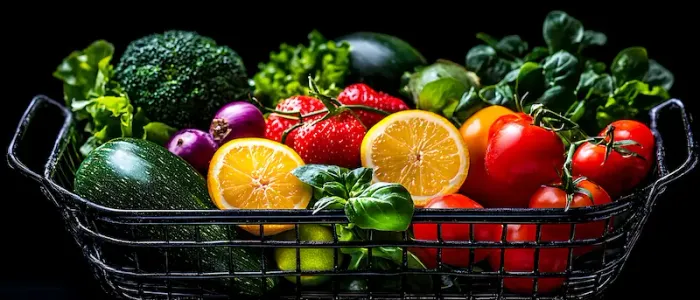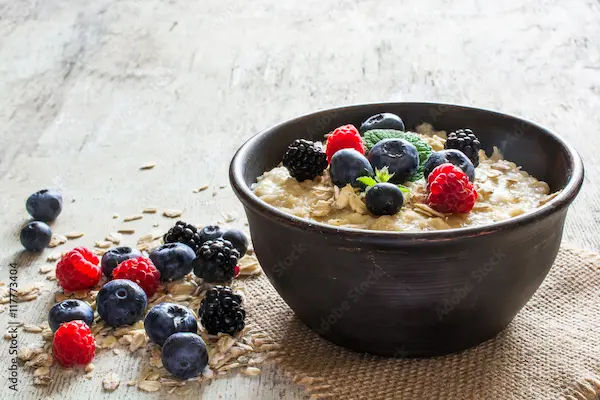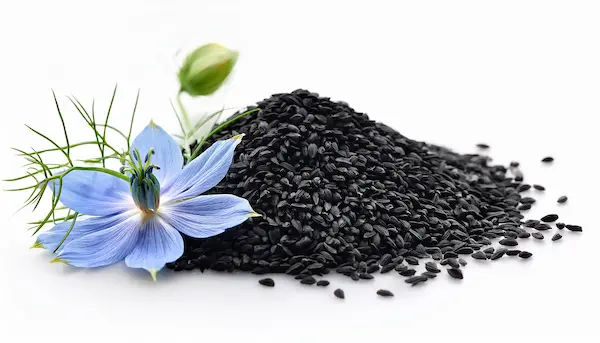Your Ultimate Summer Diet Plan Stay Cool, Hydrated & Healthy
Discover the ultimate summer diet plan to stay cool, hydrated, and healthy. Learn what to eat, what to avoid, and get simple recipes for energy and vitality in the heat.


Introduction
The scorching summer sun doesn't just dictate our wardrobe; it significantly influences our nutritional needs. As temperatures soar, our bodies work overtime to regulate internal temperature, often leading to dehydration, loss of appetite, and a general dip in energy levels. This is where a strategic summer diet plan becomes your best ally. It’s not about strict restrictions but about smart, refreshing choices that keep you hydrated, nourished, and energised. This comprehensive guide will walk you through the principles of summer nutrition, what to include on your plate, what to avoid, and how to create a simple, sustainable plan that helps you beat the heat from the inside out. Let's transform the way you eat this season for optimal health and vitality.
Why You Need a Special Diet in Summer
The Impact of Heat on Your Body
Summer heat triggers a physiological response centred around thermoregulation. Your body sweats more to cool down, leading to a significant loss of water and essential electrolytes like sodium and potassium. This can quickly result in dehydration, whose early signs include fatigue, headaches, and dizziness. Furthermore, your digestive fire, or metabolic rate, can slow down in extreme heat, making heavy meals feel like a burden and often causing indigestion or bloating.
Benefits of a Summer Nutrition Plan
Adopting a tailored summer nutrition plan offers a multitude of benefits. Primarily, it proactively combats dehydration and electrolyte imbalance. It also supports sustained energy levels by providing easily digestible calories that don't overwork your system. A diet rich in seasonal fruits and vegetables naturally boosts your intake of antioxidants, which protect your skin from sun damage, and water-soluble vitamins that are lost through sweat. Ultimately, it’s a holistic approach to feeling lighter, more active, and healthier throughout the season.
The Golden Rules of a Summer Diet
Hydration is King: Beyond Just Water
While drinking at least 8–10 glasses of water is non-negotiable, smart hydration involves more. Incorporate fluids with natural electrolytes. This includes nimbu paani (without excess sugar), coconut water, buttermilk (chaas), and homemade fruit-infused waters. A good rule is to sip fluids consistently throughout the day rather than gulping down large quantities at once. Remember, foods like watermelon and cucumber also contribute significantly to your fluid intake.
Embrace Light and Easy-to-Digest Foods
Swap heavy, creamy, and complex meals for lighter alternatives. Focus on cooking methods like steaming, grilling, and sautéing instead of deep-frying. Opt for smaller, more frequent meals to avoid overwhelming your digestive system. Meals based on lentils, curd, and seasonal vegetables are far easier to digest than large portions of red meat or rich, creamy curries, which generate more metabolic heat during digestion.Consult a Dietician for Personalised Advice
The Power of Seasonal Fruits and Vegetables
Nature provides the perfect remedy for the season's challenges. Summer-seasonal produce like melons, berries, cucumbers, and gourds are naturally high in water content and essential nutrients. They are designed to help your body cope with the heat. Incorporating a variety of these cooling foods for body heat ensures a wide spectrum of vitamins, minerals, and antioxidants, making your diet both preventative and curative.
What to Eat: The Summer Superfoods List
Hydrating Fruits: Watermelon, Muskmelon, Berries
Watermelon is a classic summer superstar, comprising over 90% water and containing lycopene, an antioxidant that protects skin cells. Muskmelon is rich in Vitamin A and C. Berries, though small, are packed with fibre and antioxidants, making them perfect for healthy summer snacks. Enjoy them as is, in salads, or blended into smoothies.
Cooling Vegetables: Cucumber, Lettuce, Bottle Gourd
Cucumber is incredibly hydrating and can be added to water, salads, or eaten as a raita. Leafy greens like lettuce and spinach are light and can be used in cold sandwiches and salads. Vegetables like bottle gourd (lauki) and pumpkin are easy to digest and can be made into light soups or subzis, perfect for a light dinner recipe for summer.
Healthy Proteins: Yogurt, Buttermilk, Lentils
Curd and buttermilk are probiotic-rich foods that aid digestion and provide a cooling effect. They are excellent sources of protein and calcium. Lentils and legumes, when cooked lightly with minimal oil and spices, provide sustained energy and fibre. A Chana Salad is a perfect example of a protein-packed, light summer meal.
What to Avoid: Foods that Heat You Up
Heavy, Greasy, and Spicy Foods
Foods high in fat, like fried snacks and heavy desserts, require more energy to digest, producing more body heat—a process known as thermogenesis. Excessively spicy foods can temporarily raise your body temperature and trigger sweating, potentially leading to further dehydration. It's best to minimise these during the peak afternoon heat.
Sugary Drinks and Excessive Caffeine
While a cold soda might seem refreshing, its high sugar content can cause inflammation and dehydrate you further. Similarly, excessive caffeine from coffee and tea acts as a diuretic, promoting fluid loss. Opt for herbal iced teas or the aforementioned hydrating alternatives instead.
Sample 1-Day Summer Diet Plan
This plan is a template; adjust portions based on your activity level and hunger cues.
Breakfast Options: A bowl of poha with sprouts and lemon juice, or a glass of smoothie made with banana, berries, and yogurt.
Lunch Ideas: 2 whole wheat rotis with a light lauki sabzi, a bowl of dal, and a large cucumber and tomato salad. Follow with a small bowl of curd.
Evening Snack: A glass of coconut water or a handful of roasted makhana (fox nuts).
Dinner Suggestions: A large bowl of chana salad with onions, tomatoes, coriander, and a lemon dressing, or a bowl of vegetable khichdi with a side of raita.
Quick and Easy Summer Recipes to Try
Cucumber Mint Detox Water
In a large pitcher of water, add ½ sliced cucumber, a handful of mint leaves, and slices of one lemon. Let it infuse in the refrigerator for 2–4 hours. This is a wonderfully refreshing and hydrating drink.
Chana Salad with Lemon Dressing
In a bowl, combine 1 cup of boiled chickpeas (kabuli chana), chopped onions, tomatoes, cucumber, and coriander. For the dressing, whisk together 2 tbsp lemon juice, 1 tsp olive oil, a pinch of roasted cumin powder, and black salt. Toss everything together for a quick, protein-packed meal.
Listening to Your Body: When to Seek Help
While a healthy diet can prevent most summer ailments, it's crucial to recognise when symptoms are severe. If you experience persistent symptoms like extreme fatigue, constant dizziness, cessation of sweating despite feeling hot, rapid heartbeat, or confusion, it could indicate severe dehydration or heat exhaustion. If these symptoms persist, consult a doctor online with Apollo24|7 for further evaluation and immediate guidance. For those monitoring specific conditions, Apollo24|7 offers convenient home collection for tests like vitamin D or HbA1c to help you manage your health without stepping out in the heat.
Conclusion
Navigating the summer heat doesn't have to be a struggle. By embracing a mindful summer diet plan centred on hydration, light nourishment, and seasonal abundance, you can transform your well-being. This approach is not a short-term fix but a sustainable way to honour your body's changing needs with the seasons. It’s about choosing foods that cool and replenish, giving you the energy to enjoy everything summer has to offer. Start by incorporating one or two changes from this guide—perhaps by adding a new hydrating fruit to your breakfast or swapping your evening snack for a healthier option. Your body will thank you for the renewed energy and vitality. Here’s to a healthy, happy, and cool summer!Consult a Dietician for Personalised Advice
Consult a Dietician for Personalised Advice

Ms. Sushma Jaiswal
Dietician
42 Years • M.Sc.(Food & Nutrition)
Bengaluru
Swasthya Nutrition, Bengaluru

Ms. Neelanjana J
Dietician
5 Years • Bsc., Msc. Nutrition and Dietetics specialised general weight management, PCOS/PCOD weight loss and Diabetes management. A clinical dietitian with 4+ year experience specializing in evidence-based, result-oriented nutrition therapy. I have extensive experience in weight loss, thyroid management, PCOD/PCOS, weight gain, and diabetes & prediabetes care. My approach is personalized, practical, and sustainable—focusing on helping individuals achieve long-term lifestyle change rather than quick fixes. I work closely with clients to understand their medical history, lifestyle, and goals, and then design customized diet plans that support hormonal balance, metabolic health, and overall wellbeing. My goal is to make nutrition simple, realistic, and effective—so you see measurable results and feel your healthiest self.Auther in Health benefits of jackfruit (Artocarpus heterophyllus Lam.) seeds: A review (2023) The Pharma Innovation Journal Co- Auther in Malnutrition in Women: A review (2023) The Pharma Innovation Journal. Highfield Level 3 in HACCP. Highfield Level 4 International Award in Food Safety Managment
Bengaluru
Apollo Clinic, JP nagar, Bengaluru

Ms. Sreeparna Dey Dhara Deb
Dietician
10 Years • DNHE
Bansdroni
Siddhita Healthcare., Bansdroni

Ms. Suhita Sinha
Dietician
8 Years • BSC Food & Nutrition
Kolkata
Chikitsa Medicare Centre Pvt. Ltd.Sattelite Centre Behala Chowrasta, Kolkata

Dr. Eti Jain
Dietician
11 Years • MSc in Nutrition
Gurugram
Diets by Dietitian Eti, Gurugram
Consult a Dietician for Personalised Advice

Ms. Sushma Jaiswal
Dietician
42 Years • M.Sc.(Food & Nutrition)
Bengaluru
Swasthya Nutrition, Bengaluru

Ms. Neelanjana J
Dietician
5 Years • Bsc., Msc. Nutrition and Dietetics specialised general weight management, PCOS/PCOD weight loss and Diabetes management. A clinical dietitian with 4+ year experience specializing in evidence-based, result-oriented nutrition therapy. I have extensive experience in weight loss, thyroid management, PCOD/PCOS, weight gain, and diabetes & prediabetes care. My approach is personalized, practical, and sustainable—focusing on helping individuals achieve long-term lifestyle change rather than quick fixes. I work closely with clients to understand their medical history, lifestyle, and goals, and then design customized diet plans that support hormonal balance, metabolic health, and overall wellbeing. My goal is to make nutrition simple, realistic, and effective—so you see measurable results and feel your healthiest self.Auther in Health benefits of jackfruit (Artocarpus heterophyllus Lam.) seeds: A review (2023) The Pharma Innovation Journal Co- Auther in Malnutrition in Women: A review (2023) The Pharma Innovation Journal. Highfield Level 3 in HACCP. Highfield Level 4 International Award in Food Safety Managment
Bengaluru
Apollo Clinic, JP nagar, Bengaluru

Ms. Sreeparna Dey Dhara Deb
Dietician
10 Years • DNHE
Bansdroni
Siddhita Healthcare., Bansdroni

Ms. Suhita Sinha
Dietician
8 Years • BSC Food & Nutrition
Kolkata
Chikitsa Medicare Centre Pvt. Ltd.Sattelite Centre Behala Chowrasta, Kolkata

Dr. Eti Jain
Dietician
11 Years • MSc in Nutrition
Gurugram
Diets by Dietitian Eti, Gurugram
More articles from General Medical Consultation
Frequently Asked Questions
1. What are the best fruits for weight loss in summer?
Berries, watermelon, and papaya are excellent choices. They are low in calories, high in water and fibre, which promote satiety and aid digestion, supporting summer weight loss tips.
2. I have low appetite in summer, what should I do?
Instead of forcing large meals, focus on smaller, more frequent meals and snacks. Liquid-based options like smoothies, soups, and chaas can provide nutrition without feeling heavy.
3. Is it okay to drink cold water directly from the fridge?
It's better to drink cool or room temperature water. Ice-cold water can shock your system and may temporarily slow down digestion. The goal is hydration, not temperature shock.
4. What is a good summer drink for electrolyte replacement?
Traditional nimbu paani (with a pinch of salt and minimal sugar), coconut water, and buttermilk (chaas) are excellent natural options for electrolyte replacement that beat the heat.
5. Can a summer diet help with glowing skin?
Absolutely! A diet rich in water-dense fruits and vegetables hydrates your skin from within. Antioxidants from berries and vitamins from citrus fruits protect against sun damage and can promote a healthier glow.




